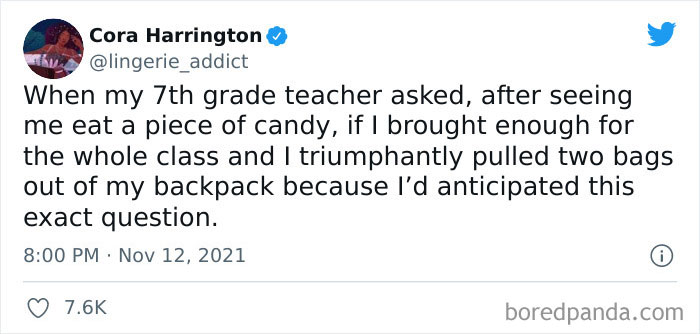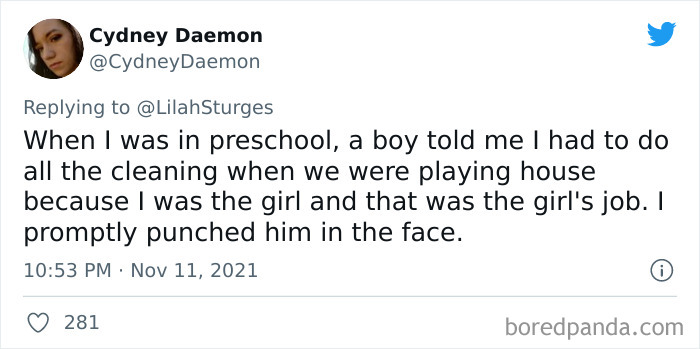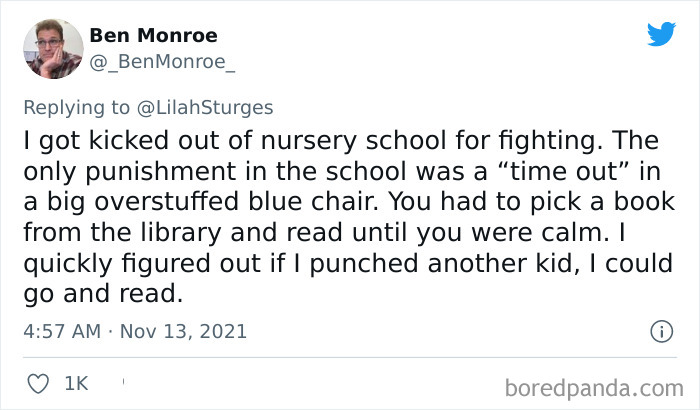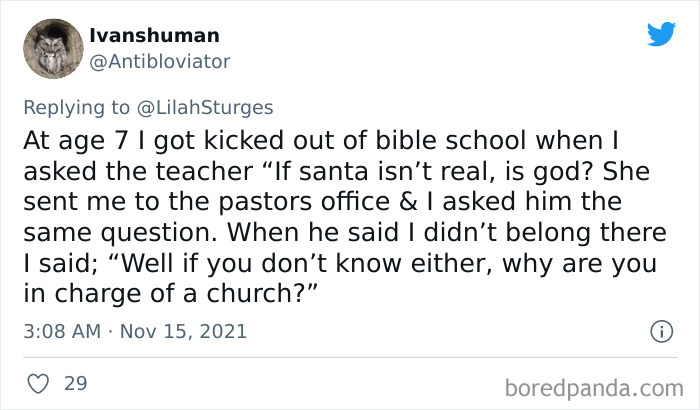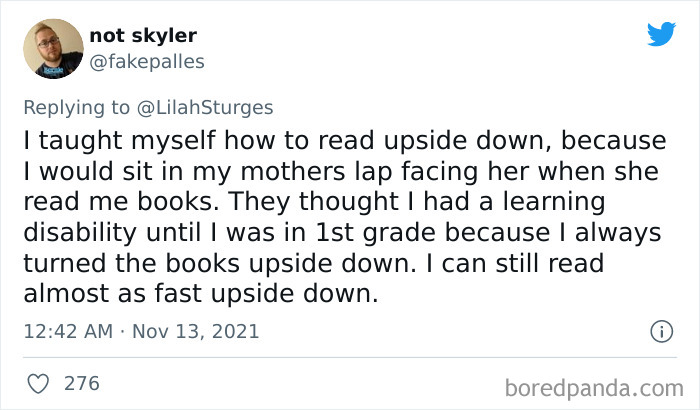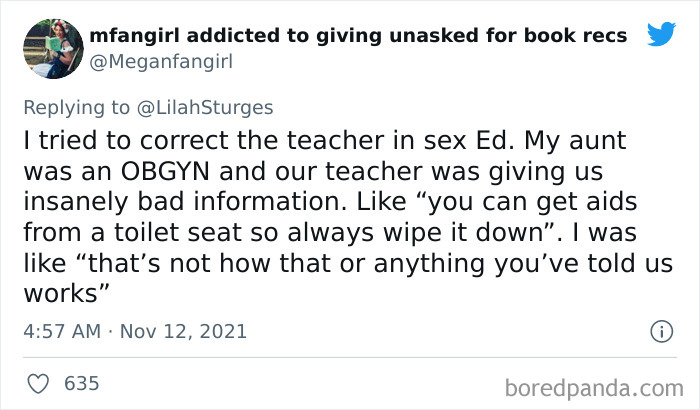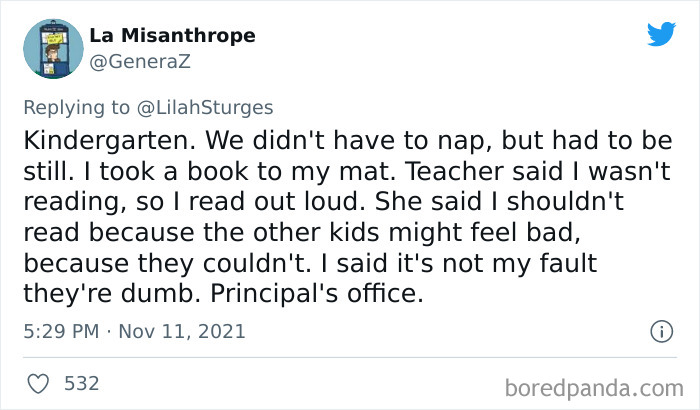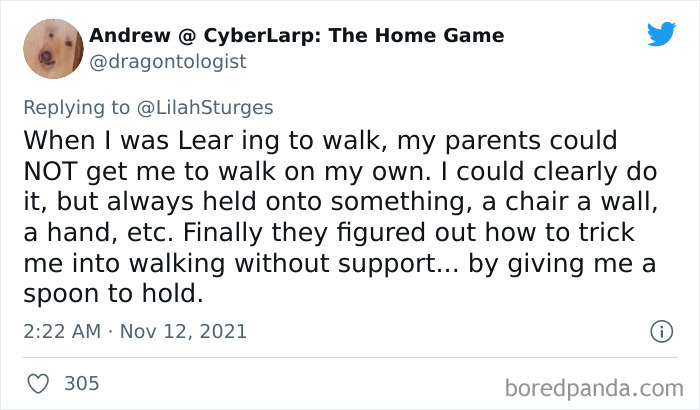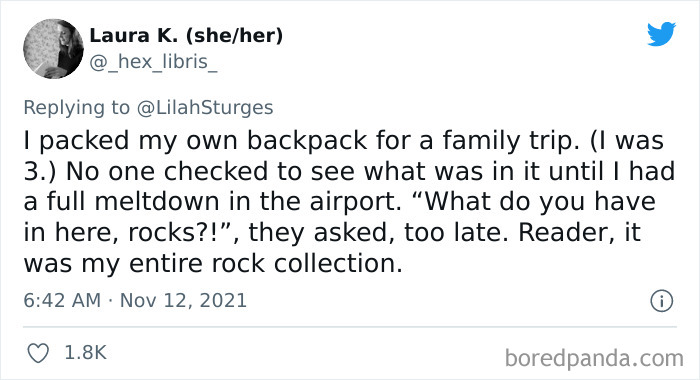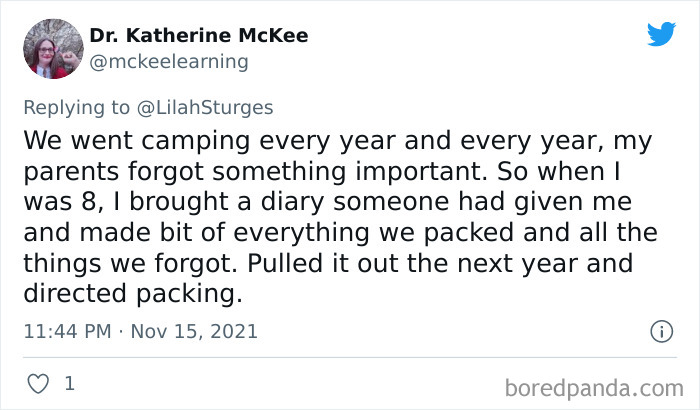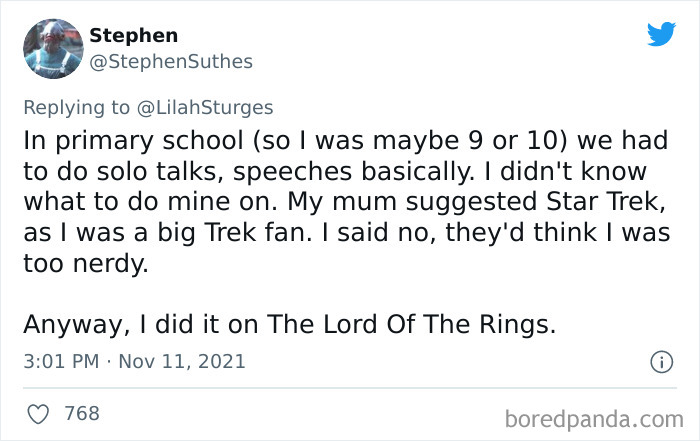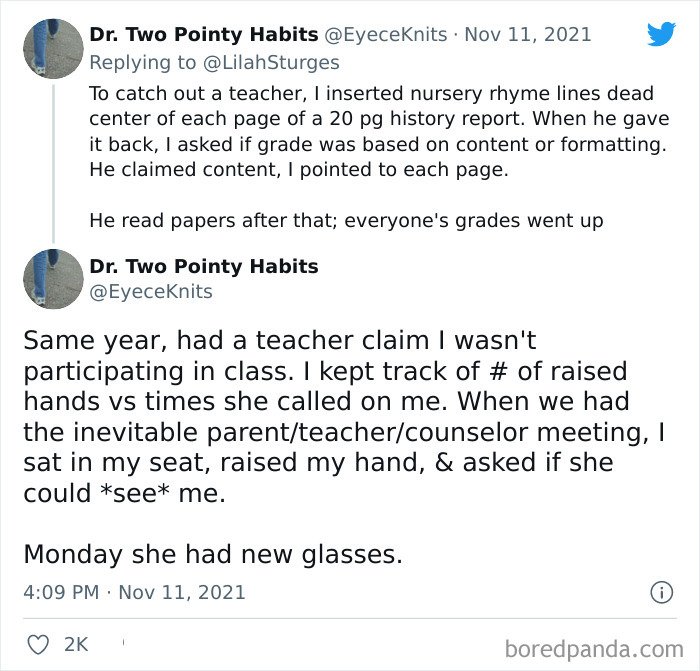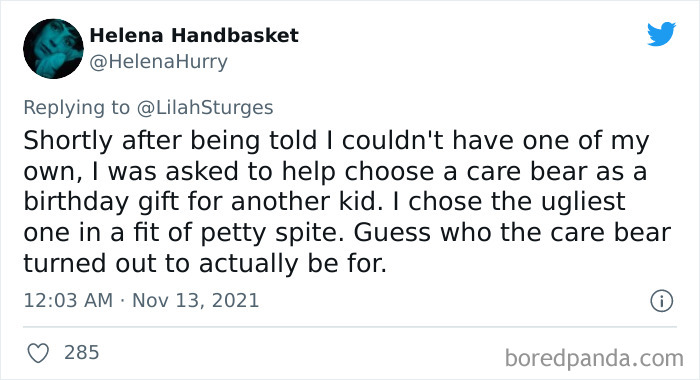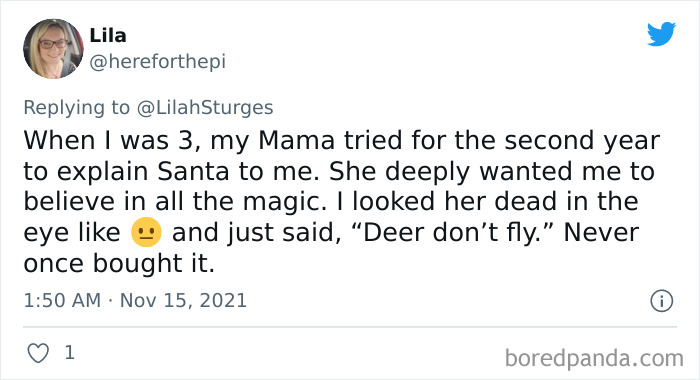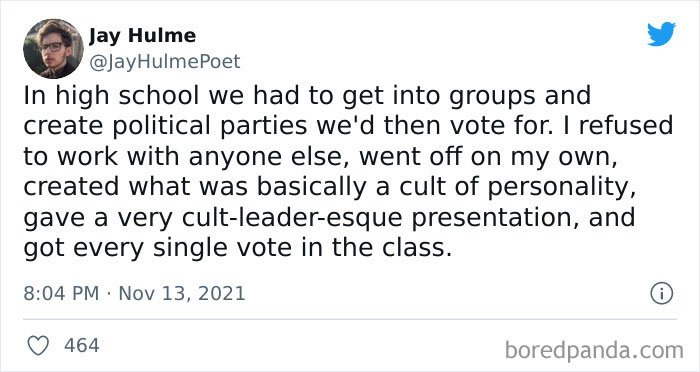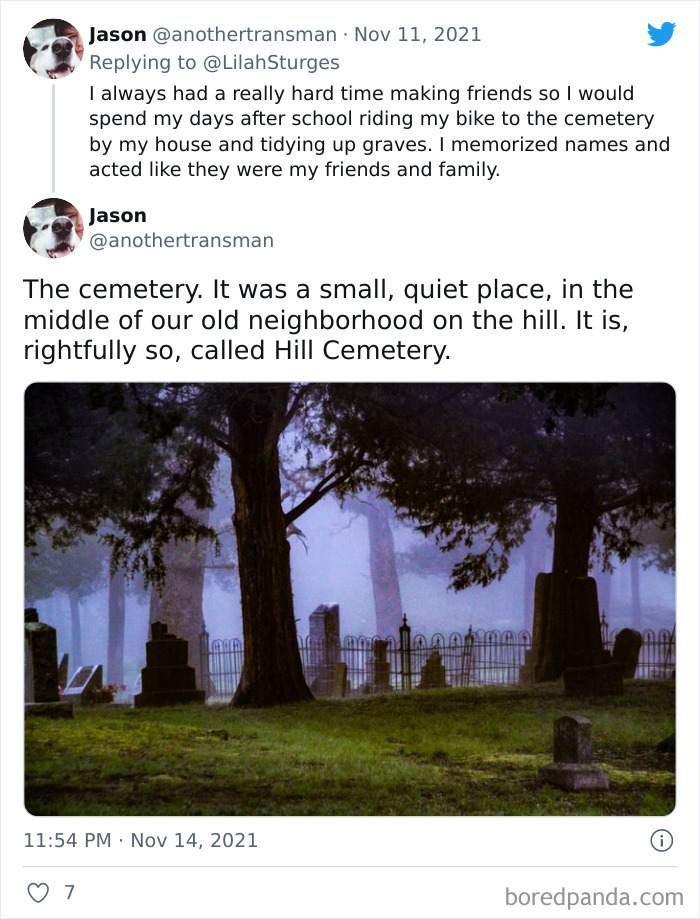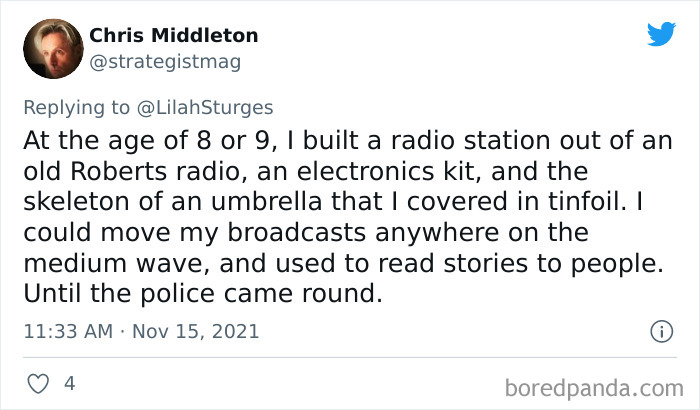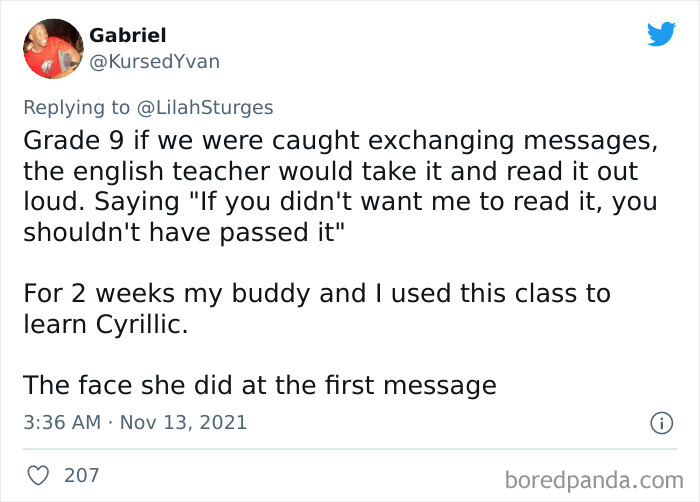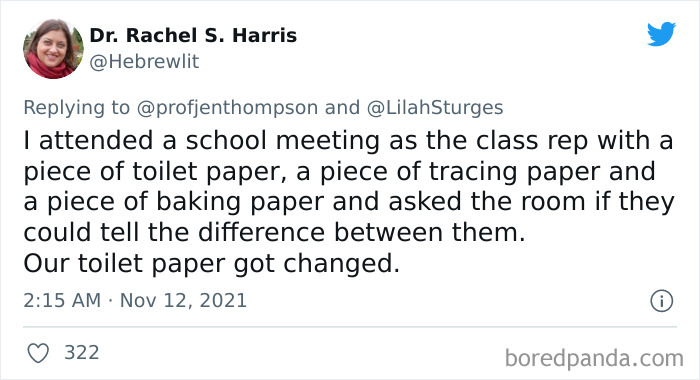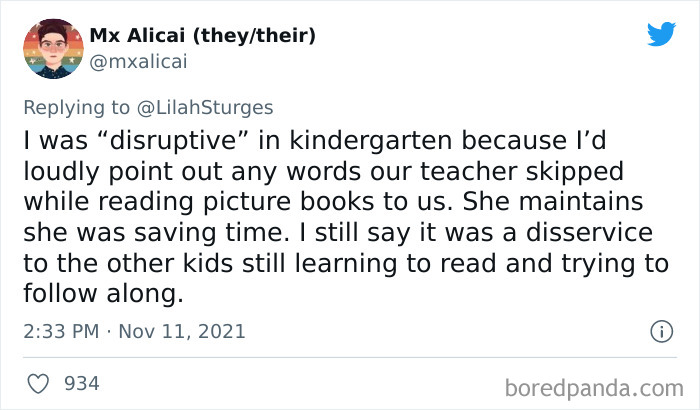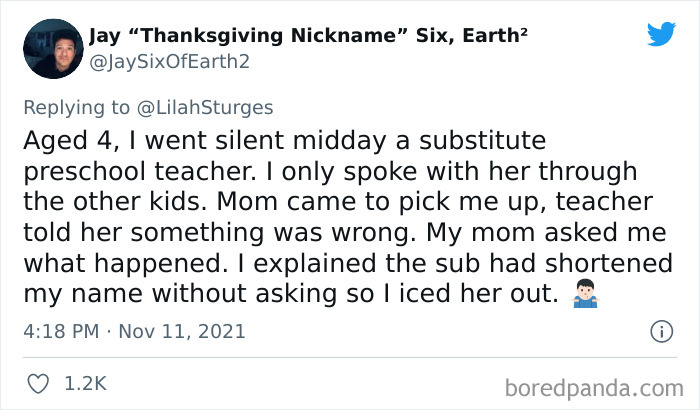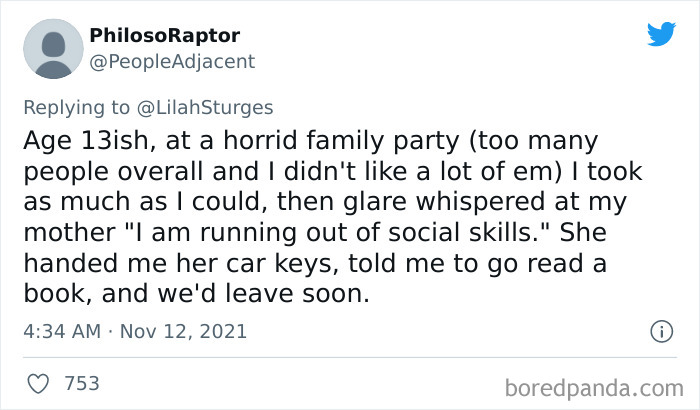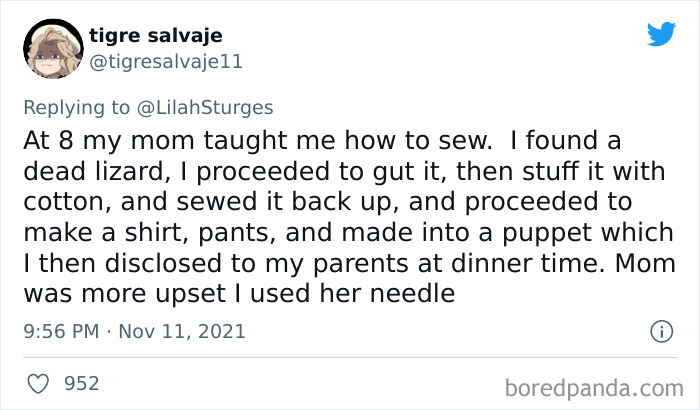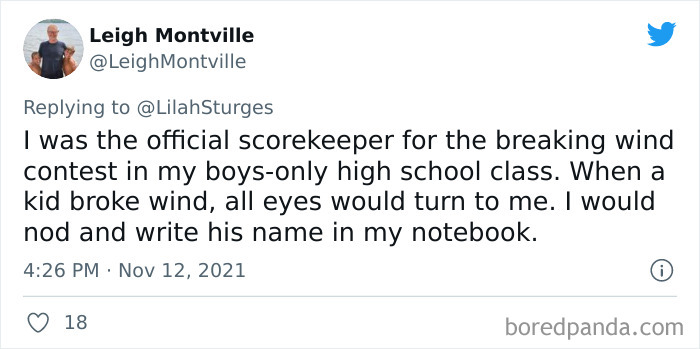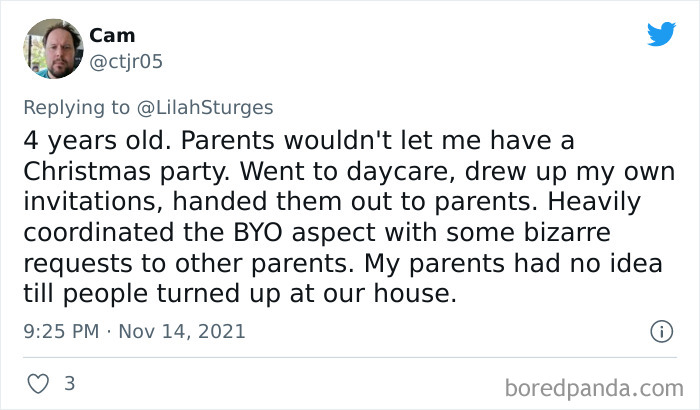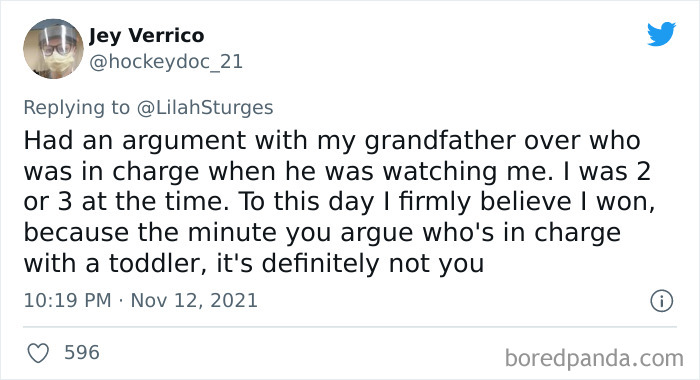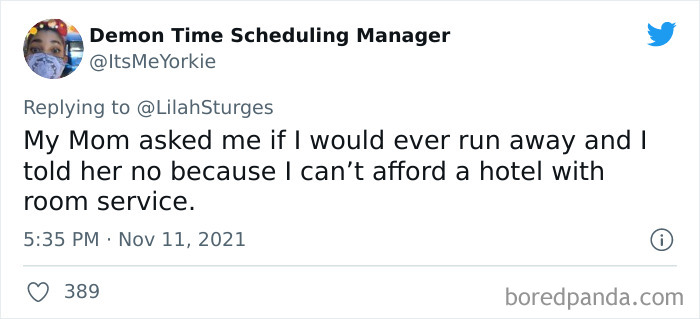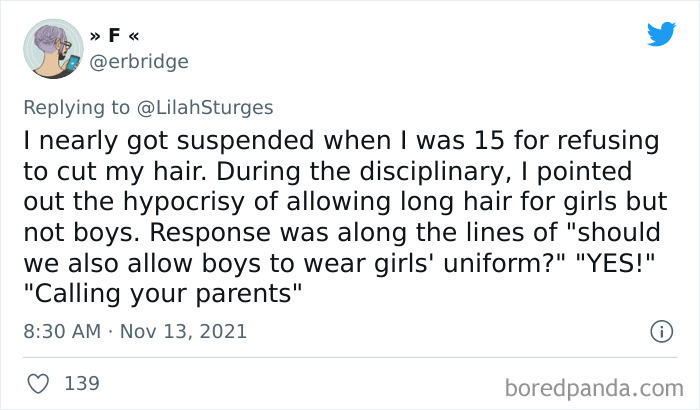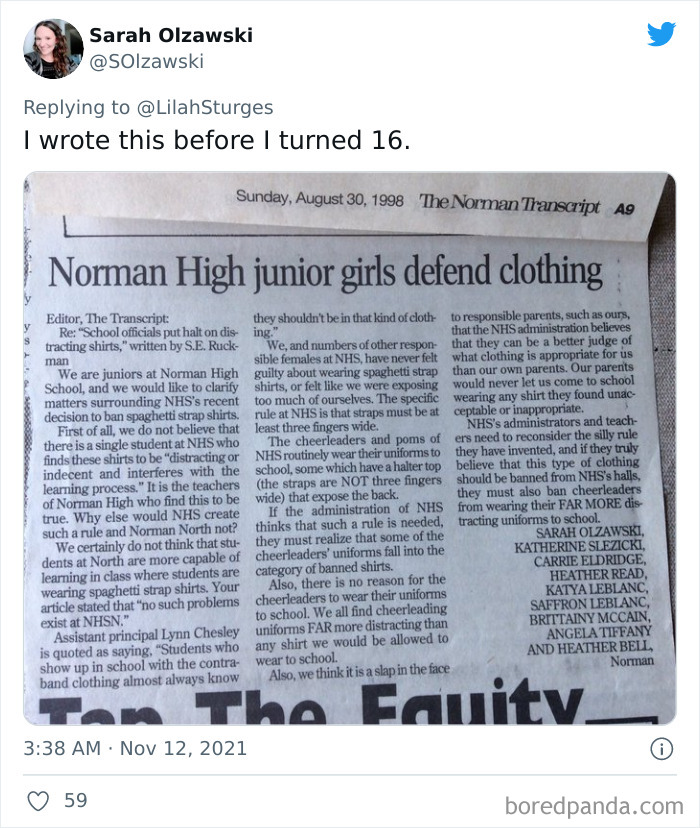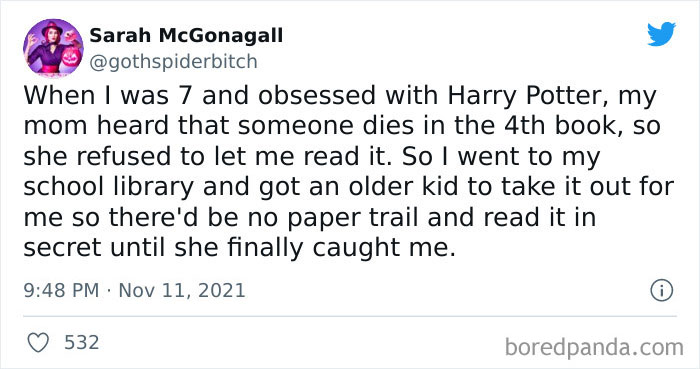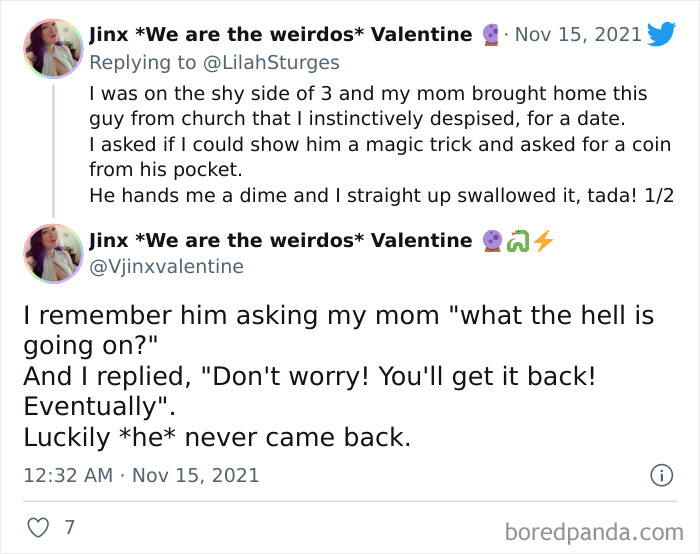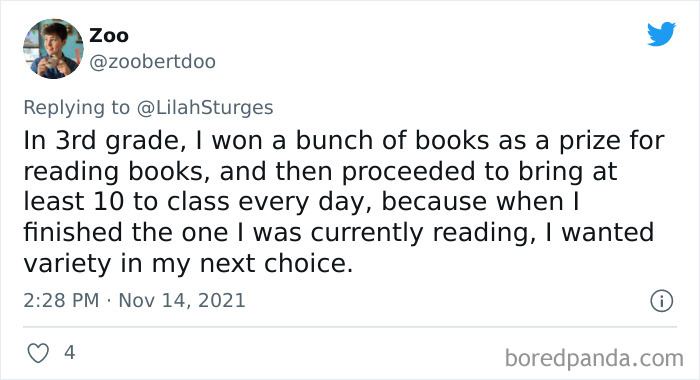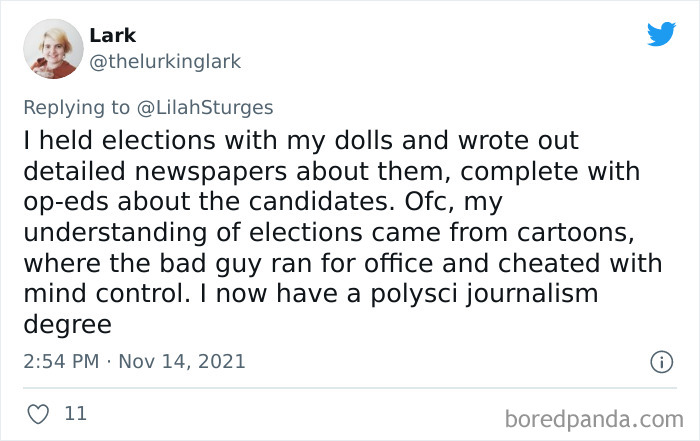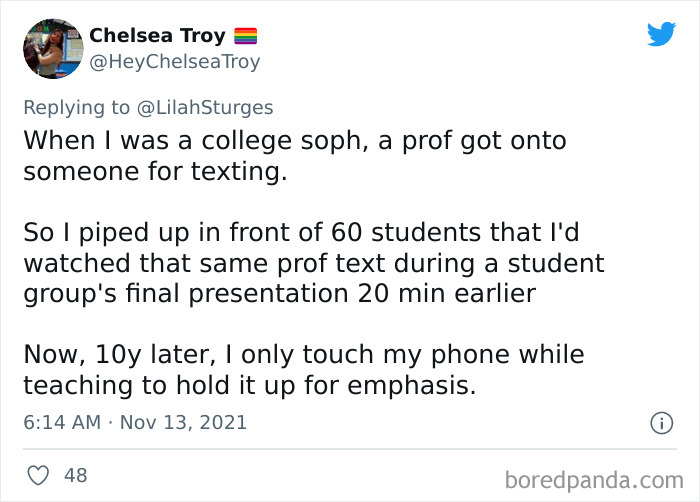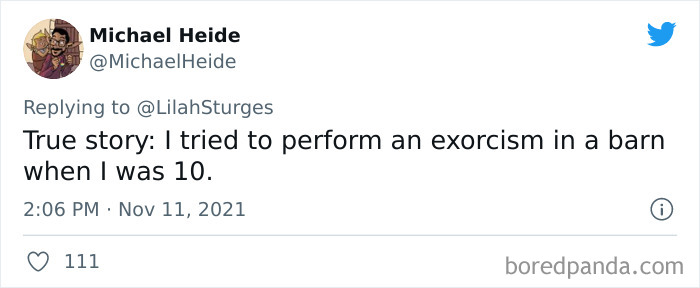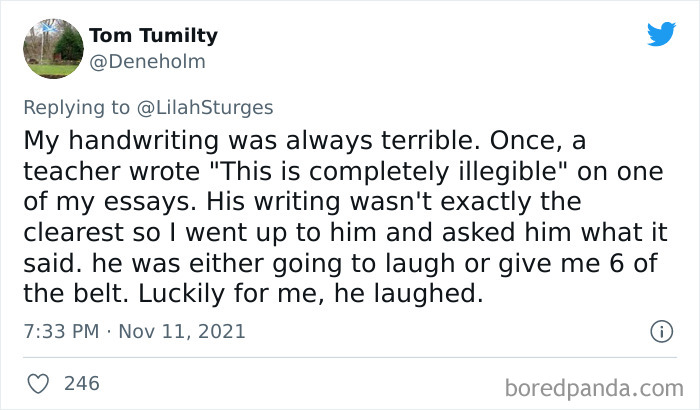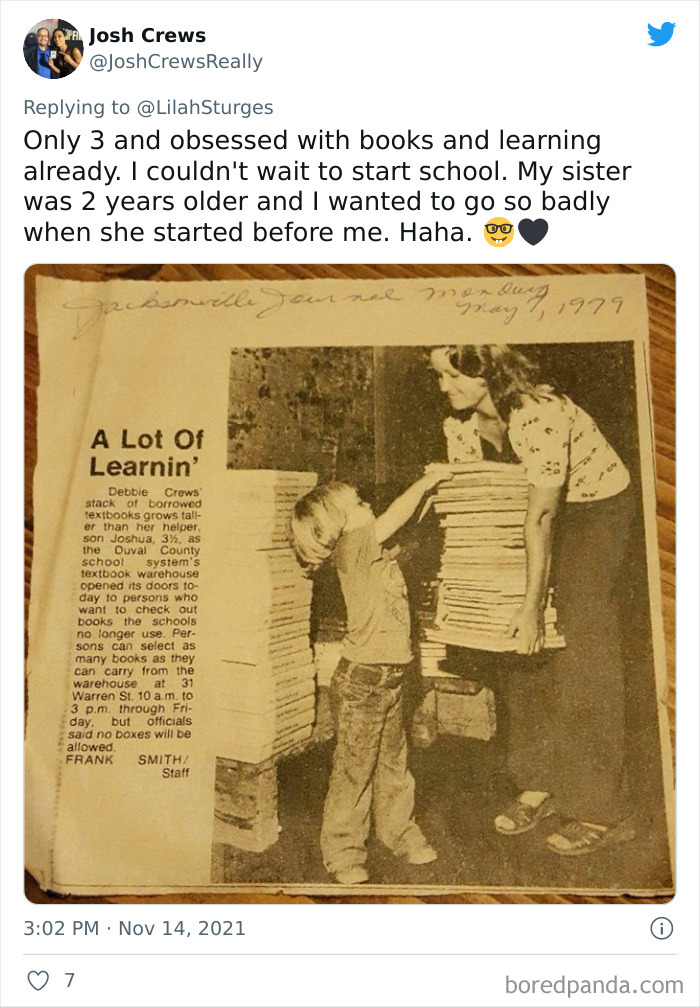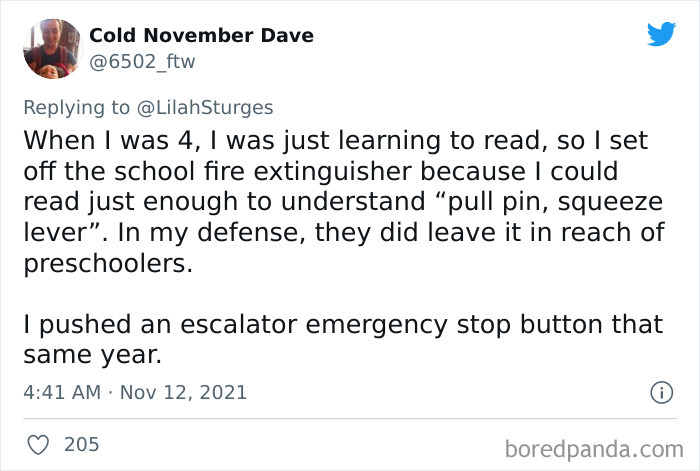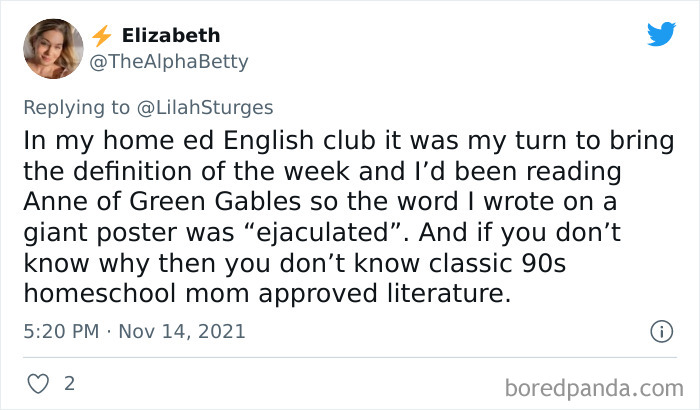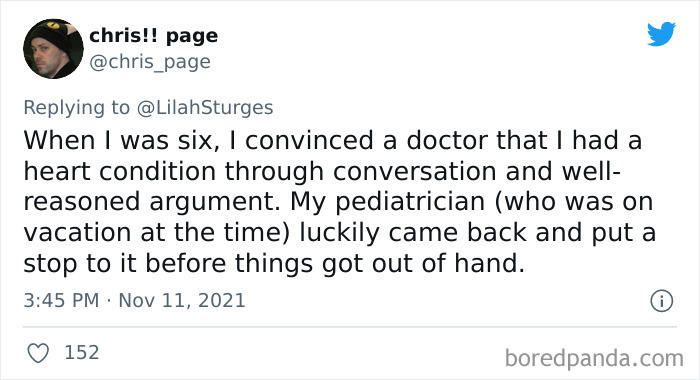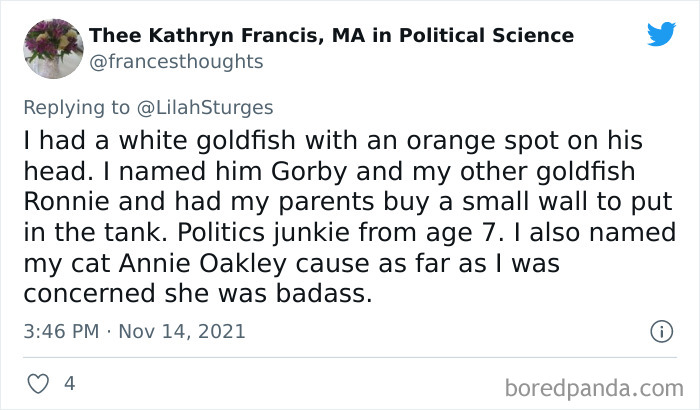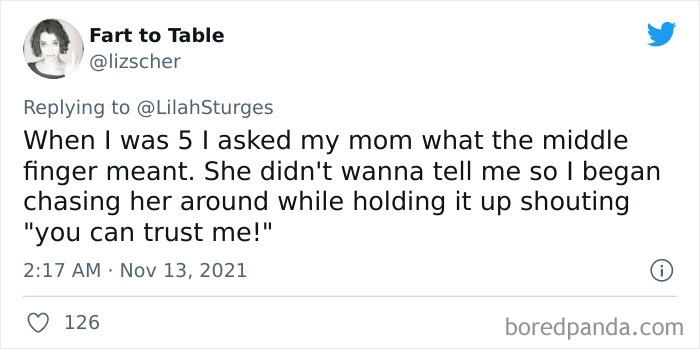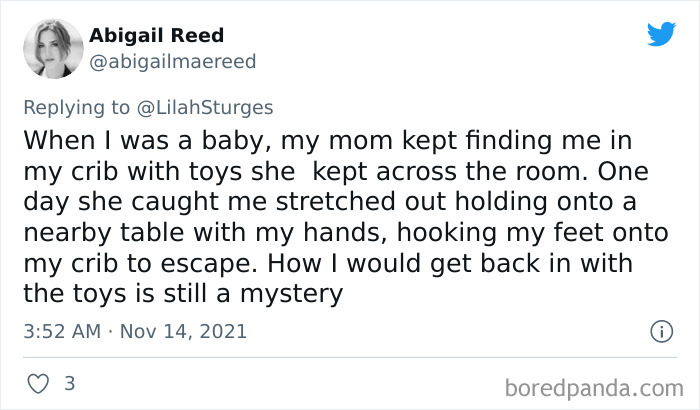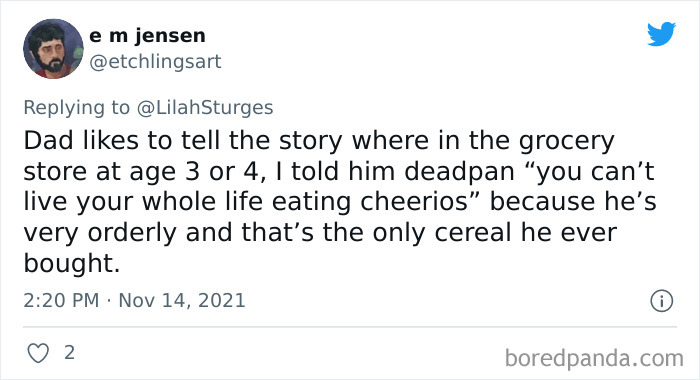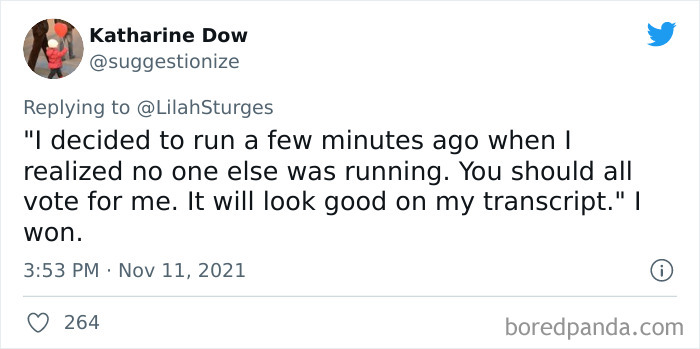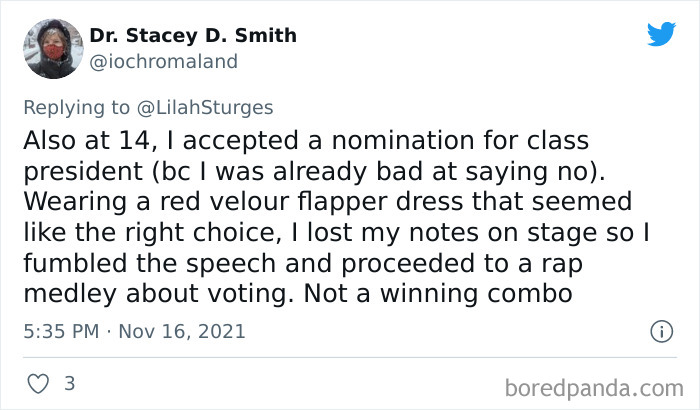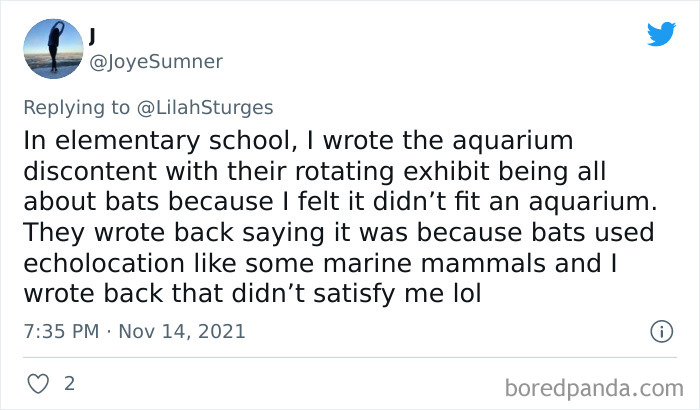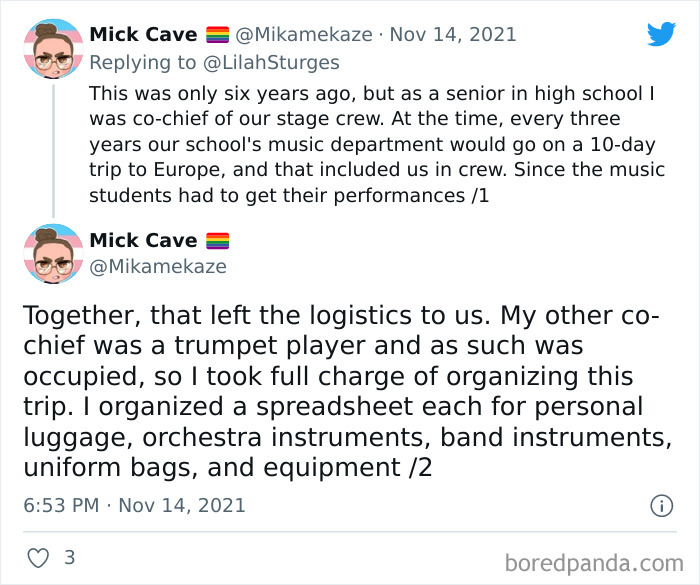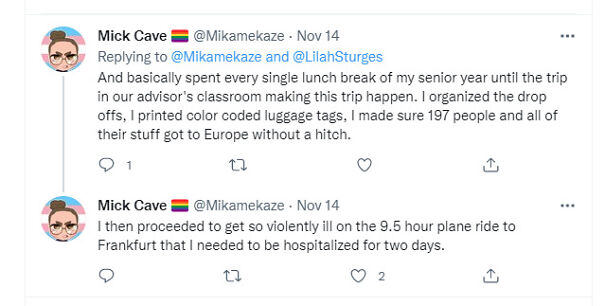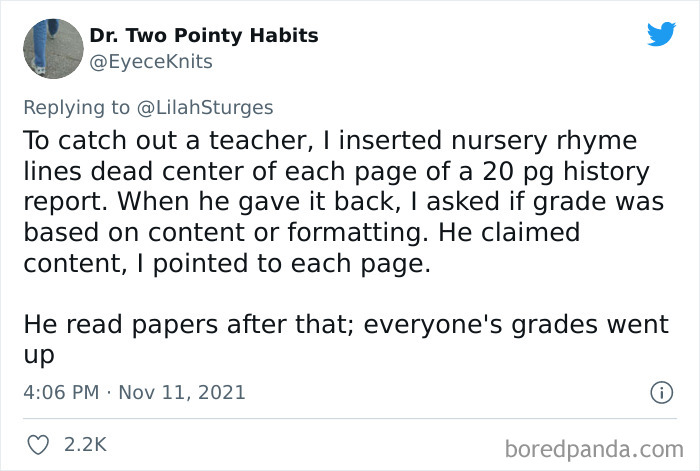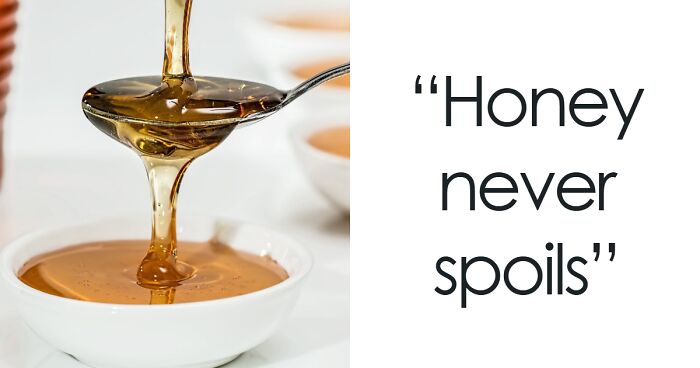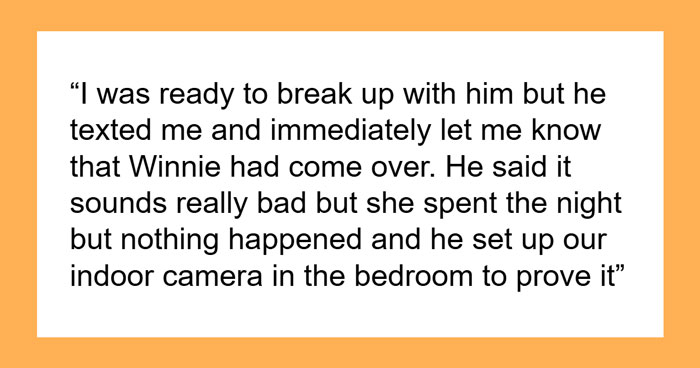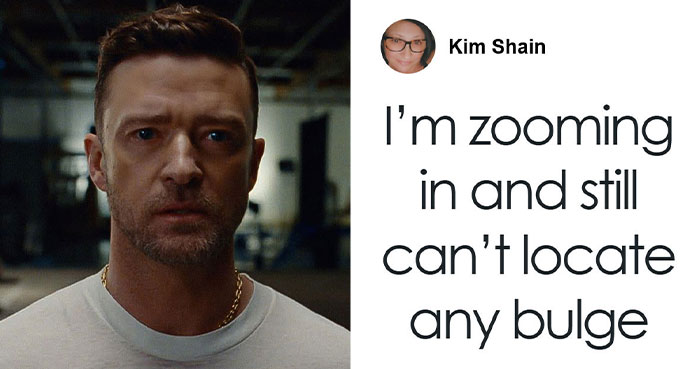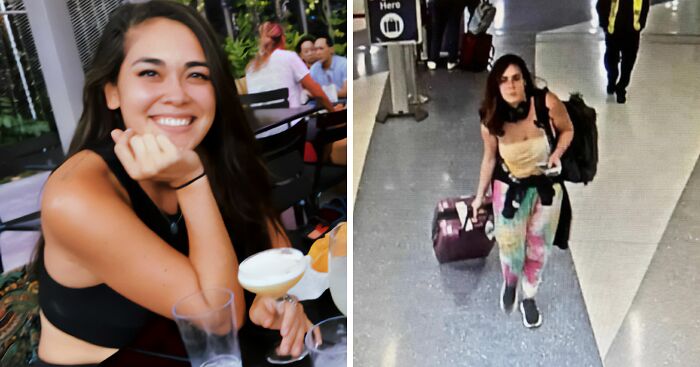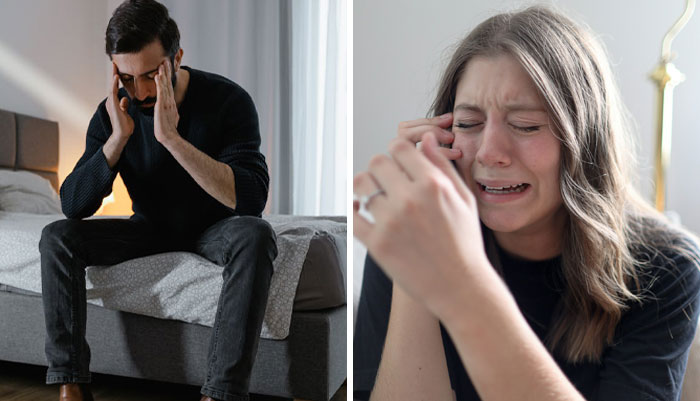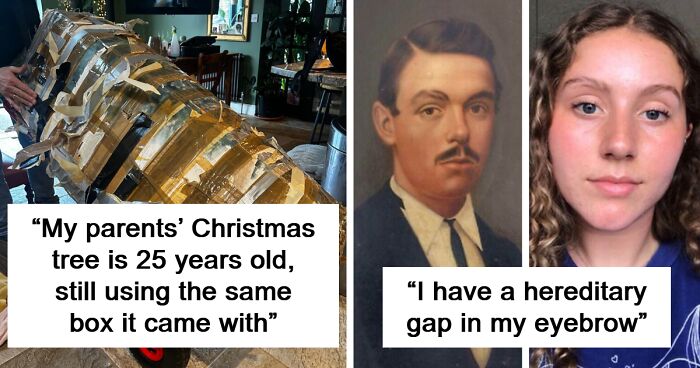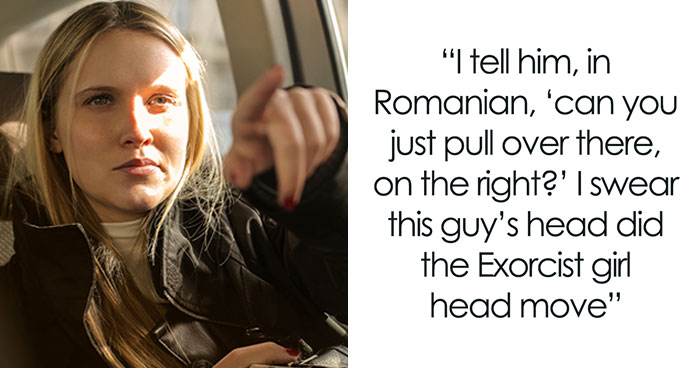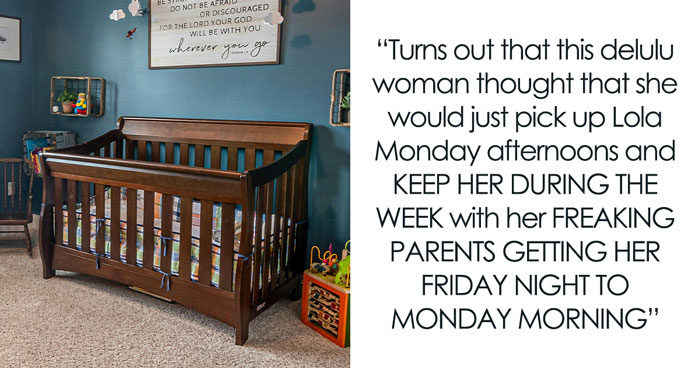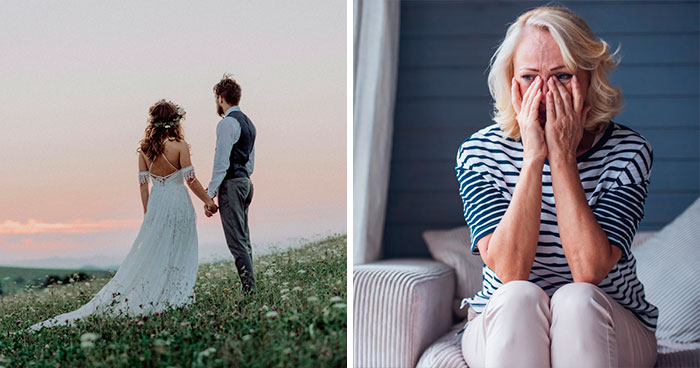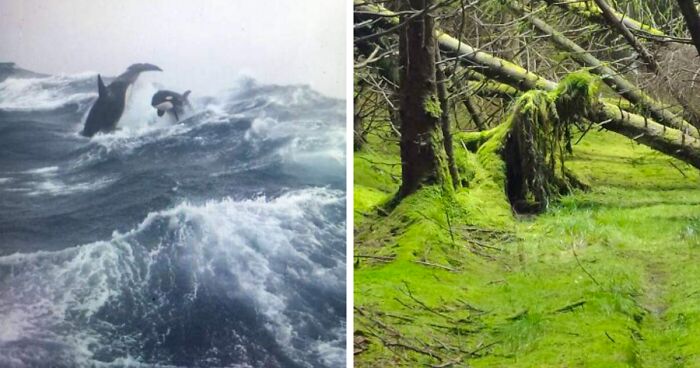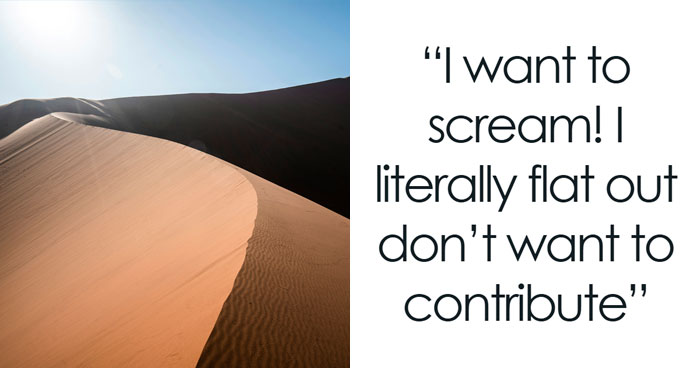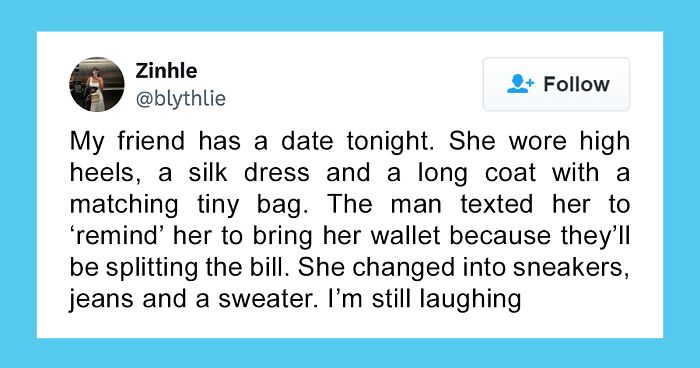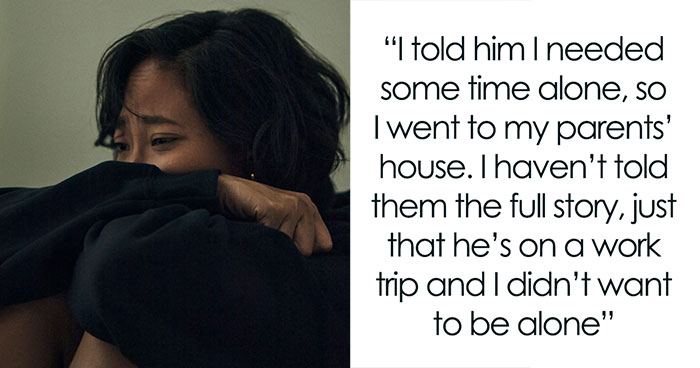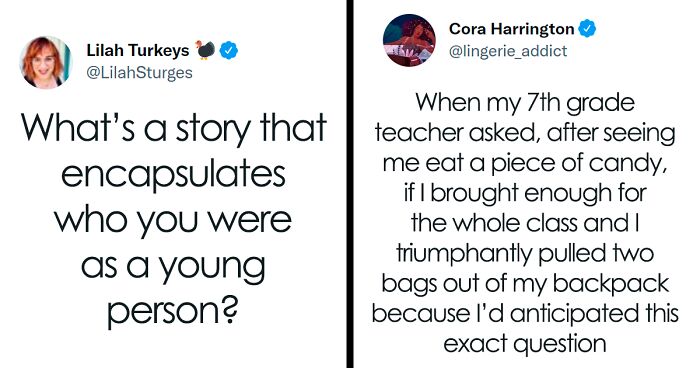
People Are Sharing The Most Hilarious Stories About What They Were Like As Kids That Truly Encapsulate Their Personality
Do you ever find yourself remembering what you were like as a kid? Playing with your friends from morning till evening, finding magic in the mundane things of everyday life and not having a single care in the world—those were the days, right? Dear childhood memories hold a very special place in our hearts and most of us have at least one funny memory to share.
Author Lilah Sturges from Austin, Texas raised this question on Twitter: "What’s a story that encapsulates who you were as a young person?" and 3.5K brave souls shared their thoughts. From starting fights with other kids just so you could have some quality reading time or packing up your entire rock collection for a family trip, these stories have a lot to say about your character.
Scroll down below to read some amusing memories from the thread, upvote your favorites, and don't forget to share your defining moments in the comments!
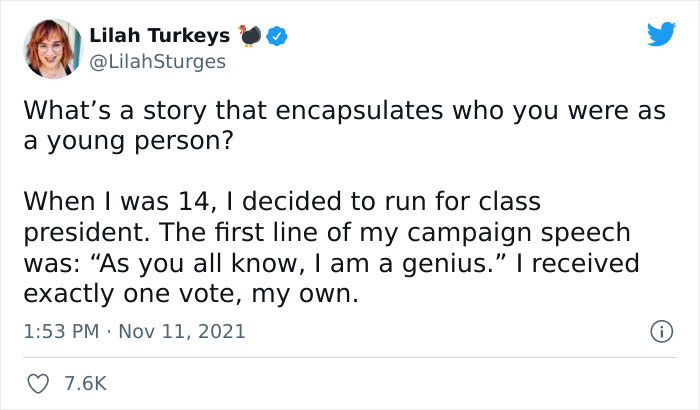
Image credits: LilahSturges
This post may include affiliate links.
Lilah Sturges, an author of numerous comic books, short stories and novels, started the thread by sharing her own memory of how she decided to run for class president at the age of 14. "The first line of my campaign speech was: 'As you all know, I am a genius.' I received exactly one vote, my own." According to her, this story paints the perfect picture of what was she like when she was younger.
It's only natural to think more about the past when we're growing older. But even though we experience countless new things as children, we only recall a few of them as adults. Whether it's the first time you're riding a bike or a significant event like the birth of a sibling, such memories can tell a lot about your youth surroundings and how they influenced your personality.
Bored Panda reached out to Dr. Eric Maisel, a retired California licensed psychotherapist and active creativity coach who is also the author of Redesign Your Mind and more than 50+ other books. He was kind enough to give us some insights into childhood creativity. According to Dr. Maisel, as a general rule, people were more creative and honest as children.
"The process of socialization and schooling, where you are supposed to learn facts for the tests and draw inside the lines, starts to rob of us our imagination and causes us to become less creative over time, unless we actively rebel and actively fight to retain our individuality and creativity."
If you wish to rejuvenate your creativity, Dr. Maisel suggested that you could do it by demanding of yourself that you are the arbiter of meaning in life, that you get to live your life purposes, and that you will speak in your own voice, even if that feels risky. "Self-censorship is the big creative blocker, and demanding that we don’t over-censor ourselves is the key to creating," the coach explained.
According to him, we often look back on our childhood because it was simple. "We fell in love purely back then, with the book we were reading at the age of seven, with the movie we saw in a hushed, darkened movie theater when we were nine, with that ballet performance we saw when we were eleven. We fell in love in a deeper way than most adults will ever fall in love again. So, we pine for that and want to go back there to re-experience that."
I'm not particularly religious, but if a pastor tells a 7-year-old they don't belong because of their questions about God, I don't think that person deserves to be a pastor.
We also had the pleasure to talk to Dr. Louisa Penfold and discuss the relationship we have with our inner child. She is a visual art and early childhood specialist currently working as a Post-Doctoral Fellow at the Harvard Graduate School of Education. Dr. Penfold is also the author of Art Play Children Learning where she shares ideas on how parents can integrate contemporary art into children’s lives.
According to her experience, many children are extremely curious and creative. "Every kid is so unique, with their own interests and quirks. Toddlers, in particular, are going through a stage of rapid biological and social development. They are constructing their own identities and observations of the world," she explained. "They are also still coming to understand what is appropriate and not appropriate social behavior. This often results in behavior that is both overly and hilariously honest."
As people get older, they start to understand social queues in a clearer way: "So adults can still be honest and creative, but engage in these behaviors with more social understandings." Moreover, since grown-ups come from different experiences with new values and morals, "it is interesting to look back on behavior from childhood as a point of comparison to where we are now," she continued.
I appreciate you, kid! Students like you were the only way some of us got decent sex ed.
"Also, many of us have had transformative childhood experiences like an amazing teacher, or a family vacation, or a fortuitous event that then shaped our interests and opportunities as adults. Reflecting on our individual journey - who we are and where we have come from - is important in owning our power as adults."
Even though we might feel overwhelmed with the burdens of our everyday lives and start to see life as busy and tiring, Dr. Penfold leaves us with a few pieces of advice on how to retain this sense of freedom. "My advice is for adults to carve out time for play where you can let your mind wander and make new connections. Activities like cooking, sewing, gardening, hiking, and art allow folks to get out of their heads and into a creative space. These experiences are so important for cultivating that feeling of freedom and creativity."
I could read at age 4 or 5, and holy crap were the first couple of grades of school ever dull for me! I ran through "Fun With D**k And Jane" during the very first reading class, when everyone else was struggling with "fun...", and there was absolutely nothing else to read.
Most people can't recall the first two or three years of life but we all have that first memory that sticks with us for years. According to Krystine Batcho, Ph.D., a licensed psychologist, "What types of events persist into adult memory may well reflect characteristics of our childhood, as well representing what is integral to what matters to us." Although it's not yet clear why some experiences are so vivid that we remember them our whole lives while others fade from our memories.
However, if you think about it, many things that we remember are often related to emotions. "Certainly injuries, such as a playground accident resulting in a broken arm, often persist in adult memory. But also memorable are happy occasions such as an especially enjoyable holiday or time playing with friends on an outing," Batcho explained.
If you were 3, that's on your adults, not you. I'm impressed you were able to pack anything at all. Still hilarious.
And these memories do not only tell the story of who we were earlier in life but also of who we have become. Spending more time to reflect can help you get a broader understanding of how your character got shaped. "The childhood memories we choose to hold on to reveal aspects of what we consider important", she said. "How that individual understands the meaning of those experiences contributes to their sense of self."
Another interesting thing to reflect on is how the world has shaped us. The stories in this list tell a lot about creativity, honesty, and the general freedom we had as kids. A creativity test conducted by NASA analyzed if we remain creative over the years of getting "educated". From the 1.6K 4- and 5-year-olds surveyed, a shocking 98 percent scored at "creative genius" level.
The research shows that the older we get, the less creative we become: "Five years later, only 30 percent of the same group of children scored at the same level, and again, five years later, only 12 percent. When the same test was administered to adults, it was found that only two percent scored at this genius level."
I once saw my mom buy a present and she told me it was a Christmas present for my cousin and I nodded along, secretly smiling and excited because of COURSE the present was for me, I’d mentioned I would have liked it and circled it in the Christmas catalogue. Guess who was disappointed and confused at lack of said present on Christmas Day and whose mom looked perplexed and said “but I TOLD you that wasn’t for you”!
The researchers found out that there are two main kinds of thinking: divergent and convergent. The former is also known as imagination, the ability to think of new ideas and possibilities. We use the latter when we are making decisions, judgments, or evaluations. In other words, “As we learn to excel at convergent thinking—or the ability to focus and hone our thoughts—we squash our instinct for divergent or generative thought.“
I appreciate this public warning to never elect Jay Hulme into any leadership position.
But even if the education system took away our creativity, there are ways to rediscover that inner 5-year-old. Apart from the obvious mood boosters like family movies or cheerful music, you should also consider daydreaming. Kids are naturals when it comes to letting the mind wander. So if you're dealing with a task that requires some creative thinking, allow yourself to zone out.
8 or 9!!!!! wow i wish i could've done something like that at that age!
Another thing would be spending time with actual kids. Seeing the way they think of whole imaginary worlds or think of new games on the spot could encourage and inspire you. Lastly, one thing to accelerate divergent thinking is to pretend to live in a perfect world where nothing bad happens. Imagining the best-case scenario will lead to being more innovative instead of feeling the weight of anxiety and stress most people tend to feel every day.
Ah, memories! Back in the 60s and 70s it seems to have been compulsory for schools to use Izal toilet paper
Didn't know that you need to save time in kindergarten. Unless of course you needed to cover "Introduction to bookkeeping and accounting" before nap time.
Of course, we should keep in mind that life was simpler when we were children. Most people did not have any serious responsibilities or worries. But it’s natural to sometimes wish to be a child again and as research shows, it could be beneficial.
At 8 years old, my mother taught me to sew, because she didn't want to spend money on new clothes from stores for me, and she was tired of sewing my clothes herself. I sucked at it because I was eight, but she refused to let me have any clothes unless I sewed them myself, and it's a damn shame I never tried using my skills on a dead lizard.
What does "breaking wind" means? Find nothing on Google but a Twilight parody film...
Except that it is. You just argue with a toddler because it's funny how they make a fool of themselves. It's a bit like watching a political debat and betting who comes out as the biggest idiot.
Death is a fact of life. No idea why a parent thinks shielding a kid from a fictional death is helpful
Ah, yes. The days when teachers could whip/spank the students. Only the boys, though. Probably because they feared the strong possibility of their own inappropriate.... (*ahem*) physical reaction had they done so to girls. Or alternately, they feared the girls' fathers' entirely appropriate physical response should they have done so.
My son who was 5 at the time called 9-1-1 from the school phone in the wrestling room. His reasoning, "to make sure it worked in case of emergency".
"Snape!" ejaculated Slughorn, who looked the most shaken, pale and sweating. "Snape! I taught him! I thought I knew him!"

 Dark Mode
Dark Mode 

 No fees, cancel anytime
No fees, cancel anytime 


